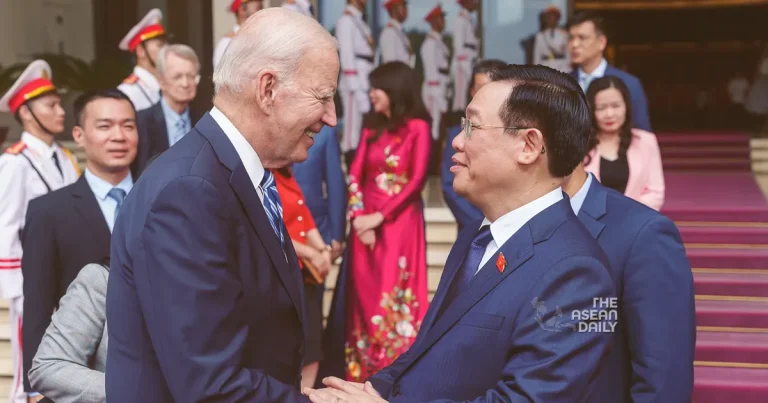10-5-2024 (HANOI) In a move that has sent shockwaves through Vietnam’s labor rights circles and raised concerns over the nation’s trade prospects with the United States, a senior Vietnamese official from the country’s labor ministry has been arrested for allegedly “deliberately disclosing state secrets.” The arrest, announced by police in the capital city of Hanoi on Thursday, has shed light on the Communist government’s ongoing crackdown on dissenting voices and reformists.
The official in question, Nguyen Van Binh, a lawyer who headed the Legal Affairs Department at the Ministry of Labor, Invalids and Social Affairs, now faces the prospect of a lengthy prison sentence ranging from two to fifteen years under the country’s stringent laws governing the disclosure of state secrets. While scant details have emerged regarding the specifics of Binh’s alleged transgressions, rights activists allege that his detention stems from his support for the concept of independent trade unions, a notion that remains firmly prohibited under Vietnam’s authoritarian regime.
Binh’s arrest, first reported earlier this week by The 88 Project, a multinational organization dedicated to monitoring and promoting human rights in Vietnam, has been branded as a worrying sign of the escalating repression that has historically targeted bloggers, environmentalists, and civil society groups. The organization depicted Binh as a reformist figure who had been spearheading efforts to ratify the U.N. International Labor Organization Convention 87, which, if adopted, would enshrine workers’ rights to form independent trade unions without prior authorization from the state.
The implications of Binh’s detention extend beyond the realms of human rights and civil liberties, casting a pall over Vietnam’s aspirations to secure more favorable trade terms with its largest export market, the United States. Last September, during President Biden’s visit to Vietnam, the two nations elevated their relationship to the highest diplomatic level of “Comprehensive Strategic Partnership,” a move widely interpreted as a reflection of the U.S. desire to cultivate Vietnam as a strategic ally in the face of rival superpower China’s growing influence in the region.
However, despite this diplomatic milestone, Vietnam remains classified by the U.S. as a non-market economy, a designation shared by nations like China and Russia, where state intervention in economic affairs is deemed substantial. Seeking to shed this unflattering label, Vietnam has formally requested that the U.S. Commerce Department review its economic status, potentially paving the way for lower tariffs on its exports to the American market.
The Commerce Department’s public hearing on Wednesday, which marks a crucial step in the review process expected to conclude in July, has thrust the issue of labor rights into the spotlight. While the determination is ostensibly based on strictly economic criteria, an open-ended category allows for considerations such as labor rights to factor into the equation, potentially weighing against a change to market economy status.
Vietnam has long maintained that its labor laws are in lockstep with international standards, including provisions for wage determination through free bargaining between workers and employers. However, this claim has been vehemently refuted by the U.S. State Department and rights groups, who assert that independent unions are non-existent in Vietnam and that no legal frameworks exist to facilitate their creation or the enforcement of labor rights.
“It’s patently false to claim that Vietnamese workers can organize unions or that their wages are the result of free bargaining between labor and management,” declared John Sifton, Asia Advocacy Director at Human Rights Watch. “Not a single independent union exists in Vietnam, and no working legal frameworks exist for unions to be created or for workers to enforce labor rights.”
For Vietnam’s government, an upgraded trade status holds not only economic significance but also symbolic importance, according to Murray Hiebert, a senior associate at the Center for Strategic and International Studies in Washington. “Vietnam officials see the U.S. continued classification of Vietnam under a ‘non-market’ status as an insult and bewildering, considering how important Vietnam is to the U.S. as a trading and investment partner,” Hiebert noted.




